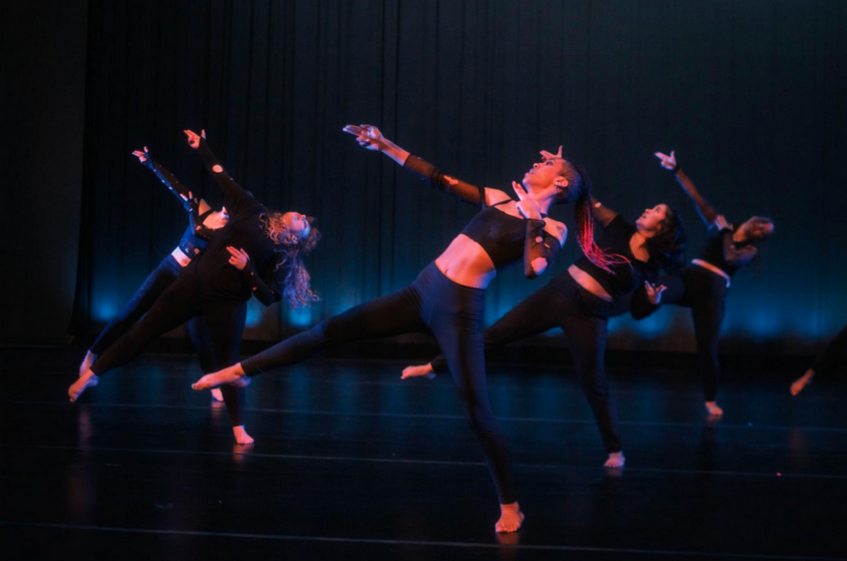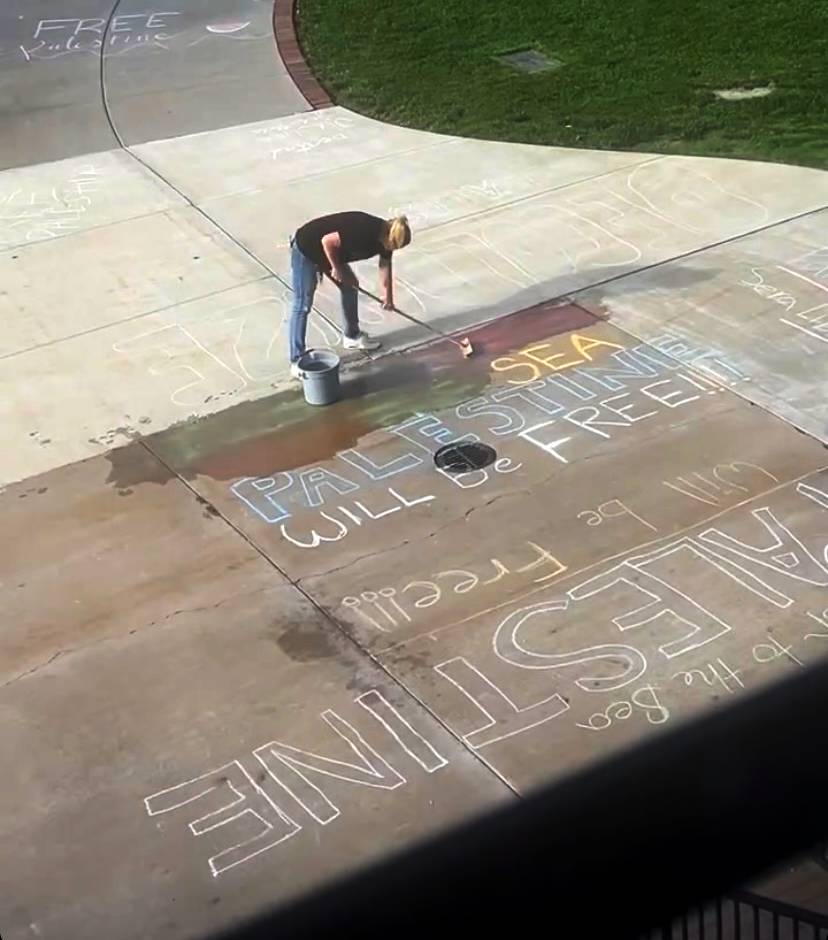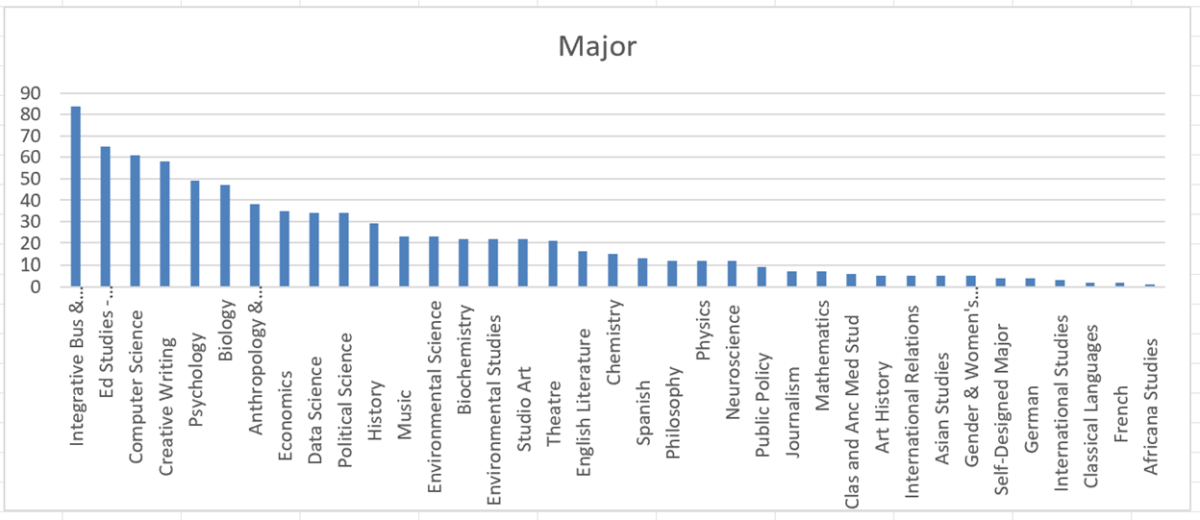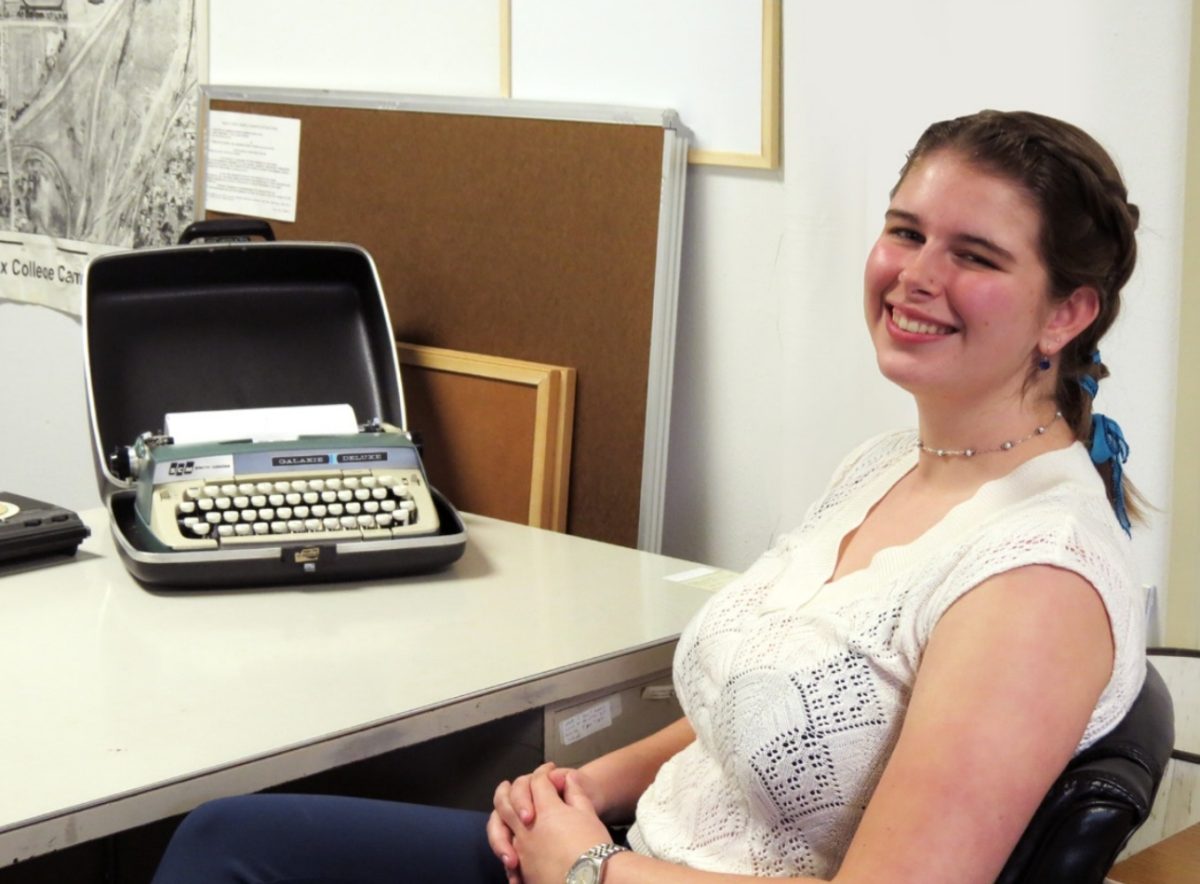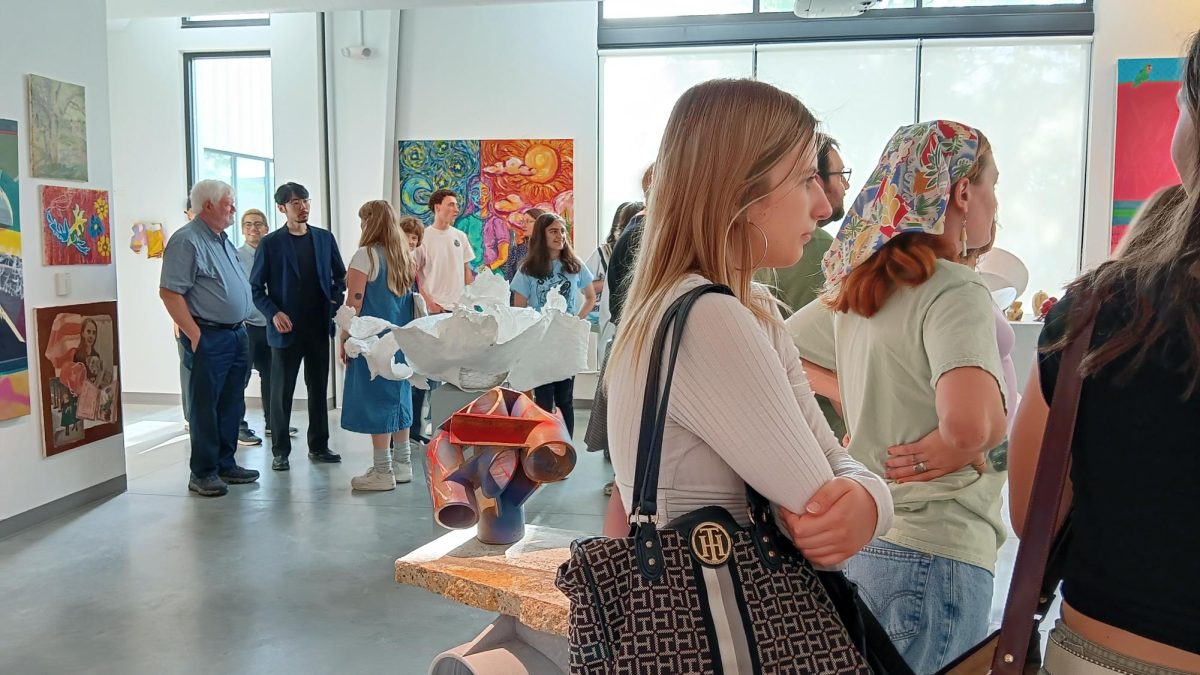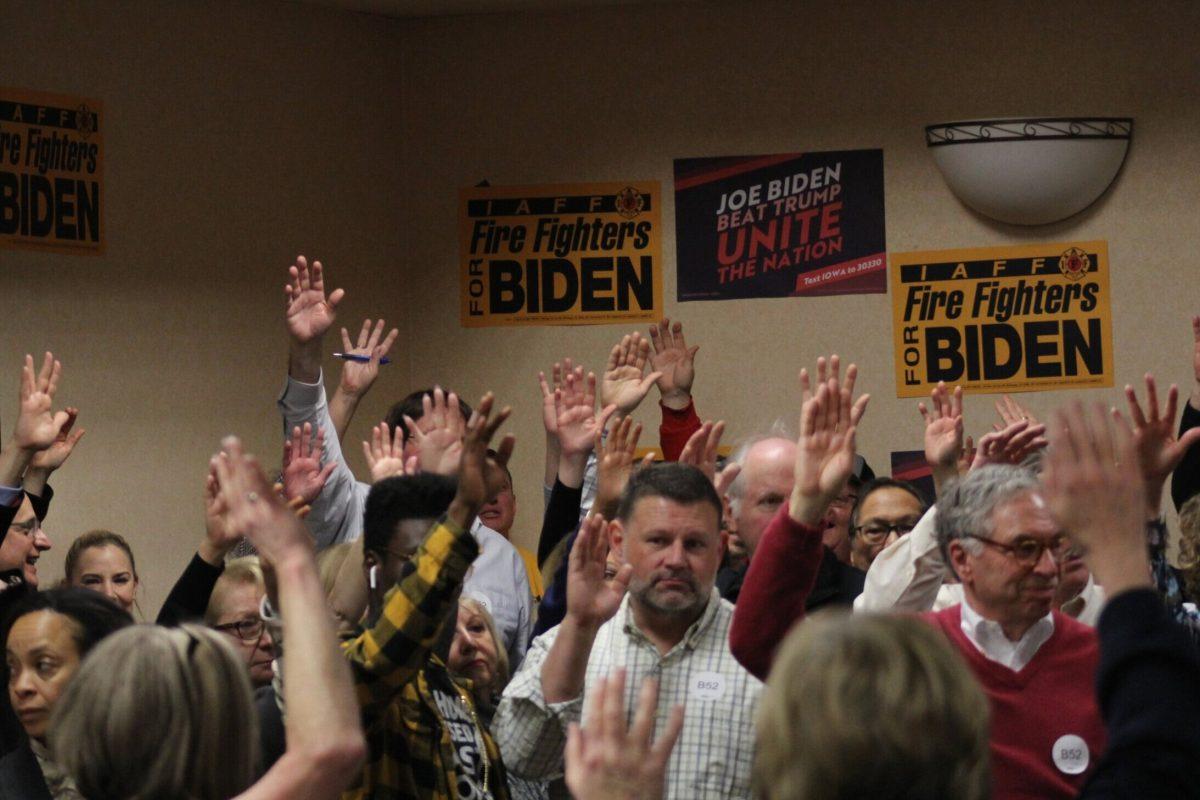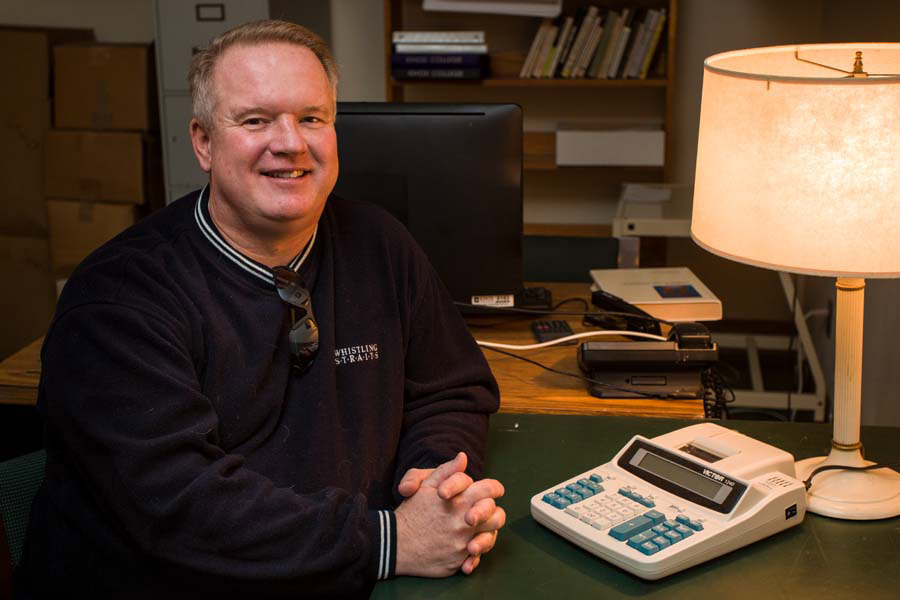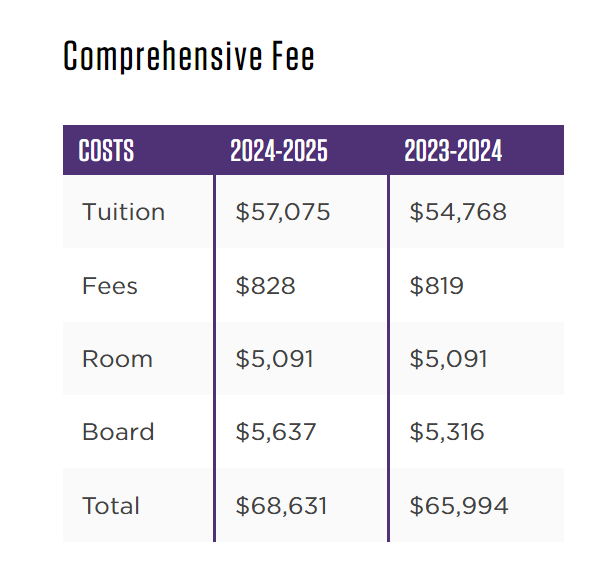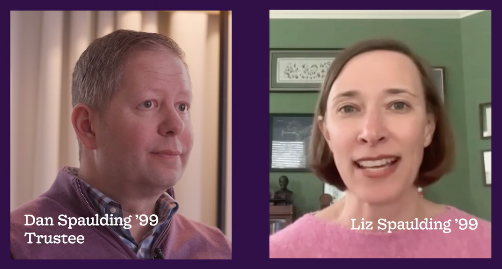TKS sent a survey asking the community how they were processing the 2020 presidential election before the announcement of the results.
This year’s presidential election has brought up significant concern within the Knox community for the future of the United States government. For many current students, this presidential election will be the first time they can cast a vote, and all while in the midst of a pandemic. The process of voting by mail and/or absentee—due to travel restrictions and concern in social settings limiting the in-person voting process—has many worried about the accuracy of the final count.
TKS released a public survey asking the Knox community what their thoughts were on the 2020 election to hear from the community at large. With 28 responses in total, the outcome shows significant concern over validity and accuracy of ballots, delay in results, general public safety/well-being and campus discourse along the lines of the election—including the decision not to vote.
Have you voted or plan to vote?
If you are voting, how are you voting?
Validity of ballots, decisions to vote and political distancing:
After Trump’s inauguration in 2016, confidence in the voting process has gone down, leaving many in the Knox community worried about what will happen after November 3rd. This is not exclusive to Knox— nationally, confidence in the voting process has decreased significantly since the 2016 election, according to The Hill. Over half of the TKS survey participants reported voting by mail or through an absentee ballot
“Normally, it’s a pretty stress-free process but this year it felt a little more convoluted. It was kind of a pain to get my ballot and with postal times being slower in general, I was overall more worried.” said an anonymous participant.
Some reported not being worried about absentee or mail-in ballots in previous years, but this year’s voting process has brought a level of panic.
“I ordered an absentee ballot and am returning it in person. I have been absentee voting and returning my ballots by mail for the past seven years now. I have never had issues voting this way but this is the first year I have actually been worried about my absentee ballot,” said an anonymous participant.
In-person voting is not as accessible compared to years previous with the outbreak of COVID-19. In the past, voting in person came with validation that each ballot submitted was counted, as the voter watches the ballot be submitted. One participant reported that they were personally worried about other mail-in ballots being considered valid, even though they voted in-person themselves.
“I feel confident about the voting process but I have seen information online about certain things you could do that would disqualify your mail-in ballot, so I am a bit worried that some people might make some of those small mistakes and as a result, their vote wouldn’t be counted. I guess for that reason I personally felt better putting my vote in the machine and seeing it get counted for myself.”
People who have decided not to vote, on the other hand, have varying reasons why they are not participating in this election. While there were not many people who reported they were not voting, the general consensus from those who did was a lack of interest in this particular election.
Of the three non-voters who provided reasoning, one participant said, “This would be the first time I am able to vote and I just don’t want to. The candidates are terrible and I have no passion for this election.”
Another person who reported they were not voting said, “Don’t like either candidate and don’t feel as if my vote matters in Illinois.”
The final comment for non-voters reasoning was, “I’m not eligible and don’t really care.”
In the final comments section of the survey, one participant made a point to emphasize why non-voters shouldn’t be receiving negative comments for their decision.
“Give grace to people who can’t vote, stop asking them to engage in those conversations if they say they aren’t able to and stop judging them if they don’t have the same knowledge either. People who legally don’t have the (right) to vote (I’m only talking about nonresident aliens that are international students), don’t owe that to anyone, just as much as they are legally only students, please stop pushing judgment so much that they feel uncomfortable doing the thing they came here to do. This also goes in the other way, include people who can’t vote into conversations if they have opinions and knowledge. Respect that they are humans whose voice is equal to yours (that they only want to engage in conversations not revoke your right) even if it’s not in electoral context. Both of these instances happen way too frequently and on a spectrum on campus as some voters just don’t respect other people no matter their affiliation/opinions, from small passive comments to patronizing behavior.”
Others have tried to distance themselves from the election all together for a variety of reasons. One participant reported that the distance between them and politics was important for their well-being.
“While I was stressed frequently about it over the summer, I’ve decided that if I keep letting it bother me it’s just going to be a waste of time. Therefore, I try to remain aware, but have put my focus toward other things,” said the participant.
Along a similar line, another participant said, “That’s not to say I’m unfazed by all of this, but I think you kind of get to a point where it’s just one thing after another and there’s zero time to synthesize this information.”
Delay in results:
Due to the change in voting this year, it has been reported that the results of the election will not be reported on election night as they usually are. For many, the uncertainty has raised anxiety, not knowing when the results will be announced.
“I think it will not be decided on election night. I’m not concerned about that as long as every vote is counted. However, I am concerned that there will be a lot of confusion between Election Day and when the results are finalized.” said one participant.
Provost Michael Schneider discussed in his guide for the election sent to the campus community on Monday that election results could take days, potentially weeks to come in depending on state laws and procedures in counting ballots. He provided a link from the website FiveThirtyEight, viewable here, that gives a summary of how each state counts ballots and when to expect to have results depending on the state.
Another participant said, “It only makes me more nervous that I won’t know [on] election day who our next president will be.
Voting in a border town:
An aspect of the election that a large number of students or voters may not have considered is the impact of living in a border town. Some have safety concerns, such as this student:
“As a first-generation citizen and resident of a border town, this election is vital for my people as it would distinguish how we stand in the United States as many people demand us to ‘go back to our country,’” someone wrote.
Border towns have been a hot topic when it comes to building the promised wall between the United States and Mexico. Questions arose of how it will affect these communities, in which about 15 million people live, according to the U.S. Department of Health and Human Services.
Others expressed concerns with the process of voting within these border towns. They can often be underserved and lack resources, which can lead to voter suppression as stated by this student.
“I am from out of state, and am voting through mail-in-ballot. It was a long process as I live in a border town and I saw first hand the stress that comes with voting suppression.”
General public safety/well-being
The Democratic and the Republican presidential candidates both come with their own downsides in the opinion of respondents, which has not helped with optimism for the next four years. Several participants mention feeling worried about the re-election of Trump and what that means to marginalized communities.
“I’ve always been patriotic about the fact that America would always move toward equality and justice. I thought the work of activists could change minds. Now I am doubting my belief that the masses can be won over and that discourse can ever be the same,” said an anonymous participant.
Another participant said, “I’m stressed about this election because neither of the candidates are people I trust or want to vote for at all. My rights as a black queer person are not cared about enough no matter which candidate wins.”
There is also a concern in regard to possible violence following the results. While several participants recorded being worried about the implicit violence that the presidential administration itself could cause, people are also worried about what supporters from either side will do if their choice isn’t inaugurated.
“As a lesbian Mexican woman, I am terrified that a specific candidate might win and if he doesn’t I’m scared of what his supporters will do,” someone wrote.
“I worry about Trump trying to invalidate the results of the election if it doesn’t go in his favor, and fighting and further dissolution of peace of the nation regardless of which candidate wins. I have friends whose parents asked them to move back to Colorado from Washington DC during the election for fear of the city getting engulfed in riots,” said a participant.
Another participant said, “I am worried. No matter the outcome I think some people will be upset and not accept the results. I’ve never seen the need to guard ballot boxes or polling sites before so it’s scary to think about the potential for violence after the election.”
Support:
Regardless of any outcome, this election process has proved to be a significant worry for many members of the Knox community. Between delay in results and distrust in the system, it is extremely important to remember to support one another. During this time, take care of yourself and your loved ones.
If you are on campus and struggling, counseling services are offering workshops that can be found here. Other support services on election day sent out by Campus Life include hanging out in Taylor Lounge from 7 p.m. to 10 p.m., hot chocolate in the quads from 7 p.m. to 10 p.m., and election night debriefs hosted by the faculty of IDIS 230 starting at 7:30 p.m.. To join that meeting, click here and enter the password knoxfox20.
The HOPE Center will also have a post-election self care event, hosted on Wednesday from 9–11 a.m. and 1:30–3:00 p.m. tomorrow and Thursday. It will be held in the HOPE Center Sanctuary room.


